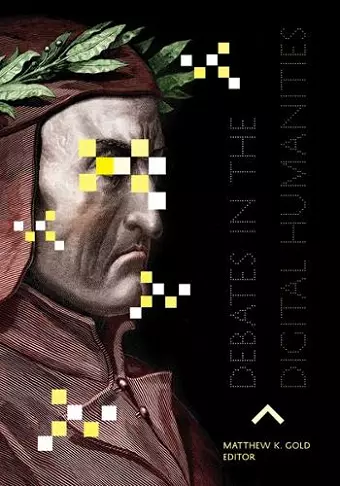Debates in the Digital Humanities
Format:Paperback
Publisher:University of Minnesota Press
Published:9th Jan '12
Currently unavailable, and unfortunately no date known when it will be back

Encompassing new technologies, research methods, and opportunities for collaborative scholarship and open-source peer review, as well as innovative ways of sharing knowledge and teaching, the digital humanities promises to transform the liberal arts—and perhaps the university itself. Indeed, at a time when many academic institutions are facing austerity budgets, digital humanities programs have been able to hire new faculty, establish new centers and initiatives, and attract multimillion-dollar grants.
Clearly the digital humanities has reached a significant moment in its brief history. But what sort of moment is it? Debates in the Digital Humanities brings together leading figures in the field to explore its theories, methods, and practices and to clarify its multiple possibilities and tensions. From defining what a digital humanist is and determining whether the field has (or needs) theoretical grounding, to discussions of coding as scholarship and trends in data-driven research, this cutting-edge volume delineates the current state of the digital humanities and envisions potential futures and challenges. At the same time, several essays aim pointed critiques at the field for its lack of attention to race, gender, class, and sexuality; the inadequate level of diversity among its practitioners; its absence of political commitment; and its preference for research over teaching.
Together, the essays in Debates in the Digital Humanities—which will be published both as a printed book and later as an ongoing, open-access website—suggest that the digital humanities is uniquely positioned to contribute to the revival of the humanities and academic life.
Contributors: Bryan Alexander, National Institute for Technology in Liberal Education; Rafael Alvarado, U of Virginia; Jamie "Skye" Bianco, U of Pittsburgh; Ian Bogost, Georgia Institute of Technology; Stephen Brier, CUNY Graduate Center; Daniel J. Cohen, George Mason U; Cathy N. Davidson, Duke U; Rebecca Frost Davis, National Institute for Technology in Liberal Education; Johanna Drucker, U of California, Los Angeles; Amy E. Earhart, Texas A&M U; Charlie Edwards; Kathleen Fitzpatrick, Pomona College; Julia Flanders, Brown U; Neil Fraistat, U of Maryland; Paul Fyfe, Florida State U; Michael Gavin, Rice U; David Greetham, CUNY Graduate Center; Jim Groom, U of Mary Washington; Gary Hall, Coventry U, UK; Mills Kelly, George Mason U; Matthew Kirschenbaum, U of Maryland; Alan Liu, U of California, Santa Barbara; Elizabeth Losh, U of California, San Diego; Lev Manovich,...
"Is there such a thing as ‘digital’ humanities? From statistical crunches of texts to new forms of online collaboration and peer review, it’s clear something is happening. This book is an excellent primer on the arguments over just how much is changing-and how much more ought to-in the way scholars study the humanities." -Clive Thompson, columnist for Wired and contributing writer for the New York Times Magazine
"I look forward to the day when anxieties about the disruptive nature of ‘digital humanities’ fade into memory and the innovative methods, theories, and approaches championed by those who have contributed to this valuable volume are respected across academia for their rigor and utility. This book will go a long way toward clarifying the debates within and about digital humanities." -Siva Vaidhyanathan, author of The Googlization of Everything-and Why We Should Worry
"Though Debates in the Digital Humanities is well over 500 pages in length, there is no fat in it; all essays contain important information and concepts relating to DH. Taken together, the book as a whole and every essay in it is a must-read for anyone who claims to be a digital humanist whether she or he works in theory, pedagogy, and/or practice." -Leonardo ReviewsISBN: 9780816677955
Dimensions: 254mm x 178mm x 46mm
Weight: unknown
504 pages